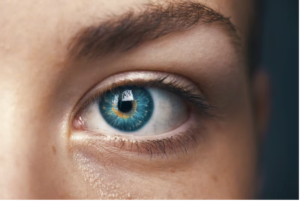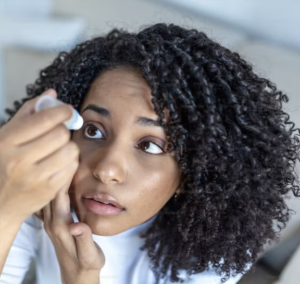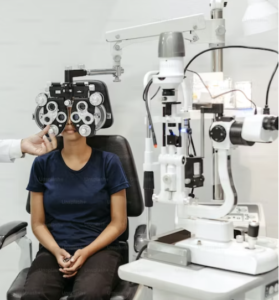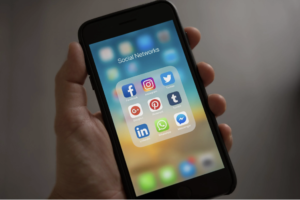 Eye health and voiceover? Probably not the first thing you’d think of when considering possible health problems in our profession. We’ve all shared the best throat remedies, or methods to help your sinus issues clear up ASAP, and wondered if that rasp you picked up could land you one of those vocal fry/millennial things that’s all the rage. There’s throat coat tea, a thousand kinds of cough drop, and a dozen other remedies we’ve all shared for throat health and reducing mouth noise, not to mention keeping yourself hydrated. But who thinks about eyes?
Eye health and voiceover? Probably not the first thing you’d think of when considering possible health problems in our profession. We’ve all shared the best throat remedies, or methods to help your sinus issues clear up ASAP, and wondered if that rasp you picked up could land you one of those vocal fry/millennial things that’s all the rage. There’s throat coat tea, a thousand kinds of cough drop, and a dozen other remedies we’ve all shared for throat health and reducing mouth noise, not to mention keeping yourself hydrated. But who thinks about eyes?
Turns out you should be. Screens are a part of life in general, from phones to TVs to tablets for every sort of person, but in voiceover we all spend a great deal of additional time between recording and editing, not to mention dealing with all the clerical and bookkeeping work that is part of running a business. We all have heard about how bad sitting for long periods can be, well the eyes are another major part of the body that deserves some TLC. Staring at a computer for long hours can cause eyestrain and all kinds of associated problems, and although eyestrain can go away after a while, how many of us go from work to a relaxing TV show? Or staring at a book? Just as it’s true for the rest of your body that it’s a good idea to vary your activities to make sure you don’t harm yourself over the long term, the eyes are the same way. It’s important to take time to vary what you’re pointing them at, and to take breaks just like you would for recording long form. If you think about it, most of us use our eyes even more than our voices, since for everything we record, the editing, billing, file transfer, and all the numerous emails are an attached part of the process.
Below are nine tips that will help you keep your eyes as healthy and happy as the rest of you. These tips will help you make sure that this vital part of your body doesn’t hold you back from whatever jobs you may have come in!
 Moisturize those eyes– Long hours of computer use make people tend to blink less. One way to combat this is to grab some eye drops to help make sure that sensitive tissue doesn’t get dry and uncomfortable. If you have contacts, you’re probably already familiar with how useful these can be, but otherwise, some artificial tears can really help your eyes feel better. If you have any questions, a consultation with your doctor can help you find the best brand and type.
Moisturize those eyes– Long hours of computer use make people tend to blink less. One way to combat this is to grab some eye drops to help make sure that sensitive tissue doesn’t get dry and uncomfortable. If you have contacts, you’re probably already familiar with how useful these can be, but otherwise, some artificial tears can really help your eyes feel better. If you have any questions, a consultation with your doctor can help you find the best brand and type.- Don’t rub too much– I think most people have heard this before, but it’s such a natural gesture I wanted to make sure and reiterated it here. It’s normal to want to do that, and boy does it feel good! Rubbing your eye can stimulate the vagus nerve which lowers your heart rate and decreases stress, and can also stimulate the production of tears. But on the flipside, if there’s anything in your eye, you can cause tears in your cornea or scratches on your eye that can lead to infection. It’s also important to remember that your hands are the most germ laden part of your body, and it’s very easy to let germs into you in that way. Lastly, you can also cause the tiny capillaries in your eyes to burst, increasing the bloodshot aspect of your eyes. (If you have eye conditions already, there are even more dangers here for you, be careful!)
- Make your monitor match– Make sure that whatever text you are reading from is an easy size to read, and that your monitor settings are a good level for your comfort. This is especially true if you’re working on longer material like elearning or an audiobook. Don’t forget you can change color, text size, brightness and many other things to find the most comfortable way to read what you need to.
- Take eye breaks- The Mayo Clinic recommends the 20-20-20 rule if you work on a computer for long periods of time. Every 20 minutes, stare at something at least 20 feet away for 20 seconds.
- Exercise those eyes– another way to combat eye strain is to exercise your eye muscles. Move your eyes in a figure eight shape, up and down, and then side to side. Take your fingertips and gently rub the muscles around your eyes.
- Light it up– make sure that your lighting setup in your booth and your work space in general doesn’t have a lot of glare, or lighting that’s at a bunch of different levels. If you read from printed material, make sure you have a good light coming from behind you to shine on the paper, and if you are reading from a screen, like I said above make sure your light levels aren’t bugging your eyes.
- Blink– take actual blinking breaks, and remind yourself to do so whenever you can. I know I mentioned that above, but it’s an important element to make part of your routine.
- Master your flow– the airflow in your workplace is an important element to consider. This is yet another thing that can dry out your eyes and increase eyestrain. Make sure there’s nothing blowing directly in your face, and consider using a humidifier if needed to make sure that your eyes stay healthy. (Obviously not in a booth, but in your office, or a space you take breaks to, for example.)
 Get eyewear with care– if you wear glasses or contacts, the Mayo Clinic recommends talking to your doctor about considering lenses that are specifically intended for frequent computer use. There also are a considerable array of lenses designed to block out the blue light spectrum that comes from every kind of screen we stare at. The American Academy of Optometrists says that they are not needed, but a writer for Good Housekeeping mentions that they provided other benefits, such as making her more aware of screen time in general. For a long time I wore lenses that filtered out blue light, even before I started to need a prescription for astigmatism and it helped a great deal with eye fatigue and headaches.
Get eyewear with care– if you wear glasses or contacts, the Mayo Clinic recommends talking to your doctor about considering lenses that are specifically intended for frequent computer use. There also are a considerable array of lenses designed to block out the blue light spectrum that comes from every kind of screen we stare at. The American Academy of Optometrists says that they are not needed, but a writer for Good Housekeeping mentions that they provided other benefits, such as making her more aware of screen time in general. For a long time I wore lenses that filtered out blue light, even before I started to need a prescription for astigmatism and it helped a great deal with eye fatigue and headaches.
The single best thing you can do to help your eyes stay healthy is reduce the amount of time that you are looking at a screen.
 So much of our entertainment these days is digital, so when you can, find alternative things to do after your work day. Take a walk, read a book (or better yet, LISTEN to one), and of course spend some time with loved ones which will give your eyes a chance to take a break and relax along with the rest of you.
So much of our entertainment these days is digital, so when you can, find alternative things to do after your work day. Take a walk, read a book (or better yet, LISTEN to one), and of course spend some time with loved ones which will give your eyes a chance to take a break and relax along with the rest of you.
As for blue lights, which reduce the production of melatonin at night, both Apple and Android phones have settings to turn off blue light, both when you choose to or on a set schedule. Before this feature became available I also used a free program called fl.ux to help control the blue light levels on my computer. This is also a great tip for your family and loved ones, since screen time is so much a part of all our lives these days.
All in all, be thoughtful about your screen intake, turn off your blue lights at night, and take time to rest your eyes, and you’ll be as eye healthy as you can possibly be.